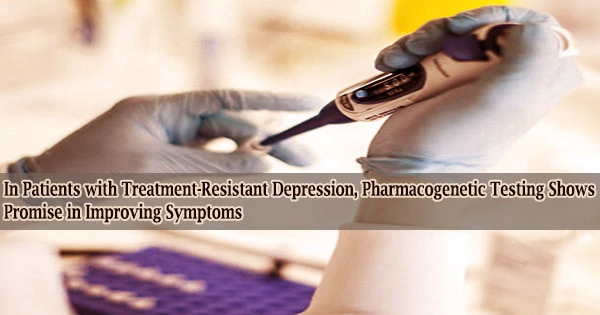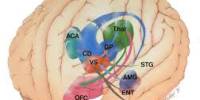A clinical trial led by the Centre for Addiction and Mental Health (CAMH) found that pharmacogenetic testing was related with nearly a two-fold (89%) improvement in remission rates compared to standard treatment in the journal Translational Psychiatry.
The 52-week double-blind study, which compared pharmacogenetic testing guided treatment to standard treatment, is the first of its kind in Canada. It included 276 patients who had previously been diagnosed with treatment-resistant depression, which means their condition had not improved after trying at least two antidepressant medications.
“Remission, or full recovery from symptoms, is one of the most challenging endpoints to achieve when treating major depressive disorder,” said senior author Dr. James Kennedy, Head of the Tanenbaum Centre for Pharmacogenetics at the Campbell Family Mental Health Research Institute at CAMH.
“The findings from this study contribute the first randomized, controlled data in Canada to the growing body of evidence of the clinical value of combined multi-gene pharmacogenetic testing.”
Pharmacogenetics is founded on the idea that, depending on their genetic makeup, each person may metabolize or respond to drugs differently. That means that patients using the same antidepressant prescription may have vastly varied levels of the drug in their blood, or that some patients may be able to tolerate larger dosages of a drug without experiencing terrible side effects due to genetics.
Pharmacogenetics can assist choose optimal drugs and dosages for each patient with the fewest adverse effects in the shortest amount of time using customized genetic testing via a cheek swab.
“Myriad Genetics is proud to support this important study that advances our knowledge of the utility of pharmacogenetic testing in Canadian patients suffering from treatment-resistant major depressive disorder,” said Jay Elliott, Vice President of Medical Affairs at Myriad Genetics.
“Although the CAMH trial was underpowered, it is encouraging that the results largely replicate prior studies in American patients, reinforcing the generalizability of pharmacogenetic testing for depression across health care settings.”
The average healthcare savings following pharmacogenetic testing, per depression patient, are over $3,000. If half of the 1.6 million Canadians with depression could get the test, savings could total $2.4 billion per year. Patient suffering during trial-and-error prescribing would be reduced. These study findings should be considered by health policy decision makers, as they provide further impetus for implementation of reimbursement by public payers.
Dr. James Kennedy
“Using pharmacogenetics for treatment-resistant depression we can be much more precise about exactly which drug will suit each person’s unique blueprints for the bodily systems that usher the drug into the brain and enable it to fight depression,” said Dr. Kennedy. “It’s very personalized to each individual.”
After failing to respond to a range of drugs for depression and anxiety, Toronto lawyer Cara Sweeny went to pharmacogenetics at CAMH on the advice of her doctor.
She was given the increased dose after genetic testing revealed that her body could tolerate and in fact required three times the regular amount of one antidepressant medicine. Her mood improved substantially after two months.
“I have this very specific memory of one day just opening up my back door to let my dog out, just an ordinary thing, and I felt that feeling of happiness that starts in your gut for the first time in a really long time,” says Sweeny, 52.
While the results of this Canadian study are preliminary due to the small sample size, they are consistent with those of a much larger American pharmacogenetics clinical trial, which revealed a 51% increase in remission rates for serious depression when compared to standard treatment.
“Pharmacogenetic tests are currently not covered by public health plans in Canada,” added Dr. Kennedy.
“The average healthcare savings following pharmacogenetic testing, per depression patient, are over $3,000. If half of the 1.6 million Canadians with depression could get the test, savings could total $2.4 billion per year. Patient suffering during trial-and-error prescribing would be reduced. These study findings should be considered by health policy decision makers, as they provide further impetus for implementation of reimbursement by public payers.”
Funding for the study was provided by Assurex Health Ltd. (now affiliated with Myriad Genetics), CAMH, Ontario Genomics and Genome Canada.
















